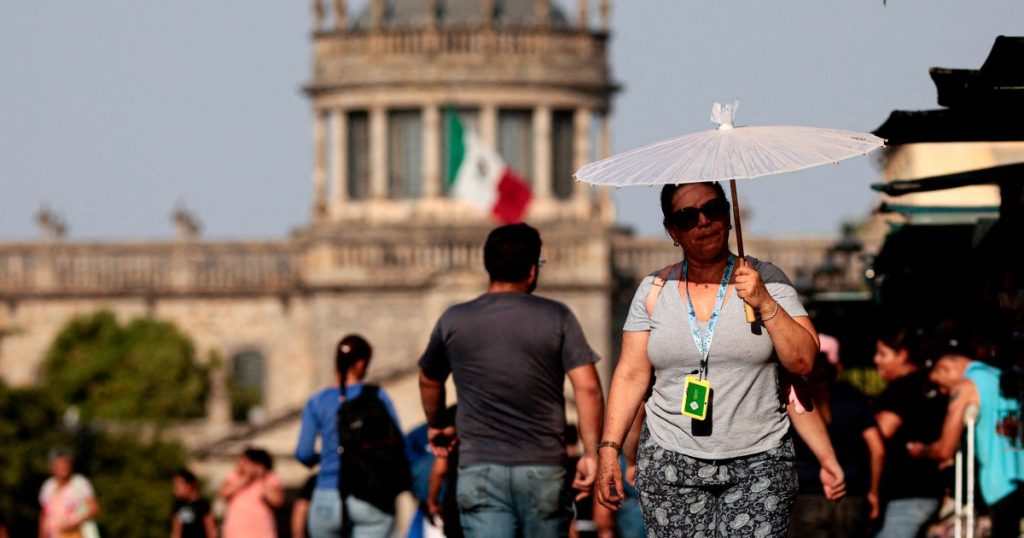Ten cities in Mexico, including the capital, recently experienced record-high temperatures as a result of a searing heat wave. Mexico City, North America’s largest metropolis, reached a record-breaking 34.3 degrees Celsius, surpassing the previous record set just a month earlier. Puebla also broke its previous record from 1947, hitting 35.2 degrees Celsius. The extreme heat has had deadly consequences, with at least four people in San Luis Potosí dying from heat stroke and more deaths under investigation. Over 40 people have been hospitalized due to heat stroke-related symptoms.
In Ciudad Victoria, Tamaulipas, the temperature soared to 47.4 degrees Celsius, breaking the previous high set in 1998. The high temperatures have led to blackouts across the country, with some areas experiencing several hours without power, particularly in the north. Classes were even suspended in the state of San Luis Potosi, which reached 50 degrees Celsius this week. Mexico’s health ministry reported seven heat-related deaths between March 17 and May 4, with the possibility of more deaths being reported after the recent heat wave.
Human-caused climate change and El Nino have contributed to the rising temperatures worldwide, leading to deadly heat waves. Mexico’s electricity system regulator issued alerts this week as demand exceeded supply in some areas. Critics have blamed the government for not investing in energy transmission networks or generating enough energy to meet demand, resulting in the blackouts. President Lopez Obrador, who is set to leave office in October, described the blackouts as “exceptional” and assured that Mexico has sufficient generation capacity.
The heat wave is occurring against the backdrop of a severe drought in Mexico, exacerbating the country’s water crisis. This crisis has made water a central issue in the upcoming June general elections. Business chambers and sector analysts have criticized the government’s response to the blackouts, indicating a need for increased investment in energy infrastructure and generation capacity. The combination of extreme heat, drought, and a strained energy grid poses significant challenges for Mexico, impacting both the population’s health and the country’s ability to meet its energy needs.


